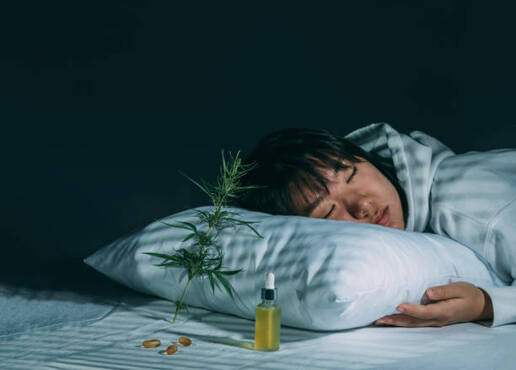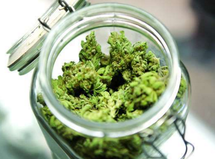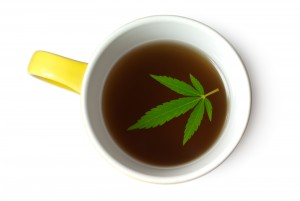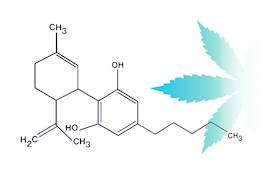|
I’m a physician from California. I provided my first Medical Cannabis recommendation in 1998. That’s 25 years ago. The patient was in chronic pain. He handed me his prescription opiates and said, “I don’t need these anymore.” That’s a rare statement from a chronic pain patient. Most are addicted to prescription opioids and usually ask for more. I asked the patient, “How are you managing your pain.” And he replied, “I use Cannabis. I just need your recommendation.”
So, 25 years later I’m reading a post from WPDE ABC 15 News in South Carolina and see it considers news that Cannabis replaces opioids and helps fight addiction. We are in an age of rapid information. Instagram, Twitter, and Tik Tok send images and messages around the world in an instant. However, the people who produce this news show appear to think it’s newsworthy that Cannabis replaces opioids and fights addiction. The article goes on to explain that 37 states have legalized Medical Cannabis and several of those states designated Opioid Use Disorder as a qualifying condition. Meaning, Cannabis can be used to fight addiction. Apparently, the people of South Carolina are aware that most of the United States has already realized the benefits of Cannabis. It has just taken them a little longer to realize the same, like 25 years longer. Matthew Campbell, C.O.O. of Cannabetter Farm out of Myrtle Beach South Carolina sells Delta-8 blunts and CBD flowers. He says, “Generally, it’s prescription opioids., Percocet, stuff like that. You hear people coming in who don’t want to take that stuff anymore because its damaging to their bodies. You hear about people that stop taking all kinds of medicine.” So, I am feeling like I’ve just come out of a time machine 25 years in the past. I look around and, no, I just in my kitchen reading this story from ABC news. “According to Recovery Research Institute, a Harvard addiction treatment center, Cannabis might have benefits to treat opioid addiction, but it has yet to receive FDA approval.” Now I get it. The good people of South Carolina are just waiting for the FDA to tell them Cannabis is safe. After evidence of thousands of years of Cannabis use and a toxicity profile that is more benign than aspirin or Tylenol, they prefer to wait. Hence the time machine perspective. South Carolina state senator Greg Hembree (District 28) says that FDA approval is crucial because politicians are not medical doctors. “If the research supports FDA approval, all you need is FDA approval, and I’m 1000% for it,” said Senator Hembree. The FDA has been pretty clear that they won’t proceed with Cannabis regulation without a federal act from Congress. Hembree feels he sees too many lobbyists – people with commercial interests – advocating for Medical Cannabis. “I would rather debate recreational Cannabis,” he says, “at least we know that’s an honest debate. That’s straight up. I wouldn’t vote for it. But, if the general assembly voted for that, I wouldn’t feel bad about that.” Rather than allowing patients to benefit without FDA approval, Hembree prefers to wait. A Medical Cannabis bill passed through South Carolina’s House committee this last month. Known as the Compassionate Use Act, the same name given to California’s bill 25 years ago, it includes conditions, such as cancer, Crohn’s disease, PTSD, Autism, and terminal illness. The bill will now head to Senator Hembree and the state senate floor. We all know that Senator Hembree is not going to vote for it. He would rather wait until the FDA approves Cannabis as safe before any dying patients in South Carolina have access to it. God forbid, they die high. So, I’m back from my visit to South Carolina. I hope things work out there. For those of you who enjoy historical trips, I recommend reading South Carolina news. Meanwhile, those who live in the other states are handing over their opiates and recovering from addiction. A night of bad sleep can worsen mood and decrease your energy. Sleep deficiency is linked to chronic health problems, including heart disease, kidney disease, high blood pressure, diabetes, stroke, obesity, and depression. Adults require at least seven hours of sleep. According to the CDC, more than a third of adults in the United States report getting less than the recommended seven hours.
In 2020, a Department of Health and Human Services study found about 8 percent of adults reported that they regularly took sleep medication to help them fall or stay asleep. Poor sleep is particularly a problem in the elderly population where more than fifty percent are diagnosed with insomnia. Studies suggest that people are smoking, vaping, or ingesting Cannabis to help with their sleep. One survey of more than 27,000 Cannabis users, published in 2022, cited that nearly half used Cannabis for sleep. But, it’s tricky to explain exactly how Cannabis helps with sleep. The studies that have been done are limited, and their results are often mixed. For example, some studies show that low doses of THC can promote sleep, whereas high doses can worsen sleep. The inverse has been shown with CBD, where high doses can improve sleep and low doses may be stimulating. CBN, an oxidative by-product of THC, is less studied than either THC or CBD, but also is reported to improve sleep. A shout-out to Dr. Shimon Lecht, the Chief Innovative Officer at Day Three Labs, who recently presented his work at the MJBiz Emerald Conference in San Diego. Dr. Lecht’s studies demonstrate that a combination of THC, CBD, and CBN improved sleep better than either of the compounds alone. The effect of all three compounds depends on dosage and timing. Dr. Lecht’s work highlights that multi-agent pharmacology is important when considering the effects of botanicals. Sleepiness can also be influenced by how you take Cannabis. Dr. Ashima Sahni, a sleep specialist at University of Illinois College of Medicine points out that ingesting pills, gummies, or other edibles will take longer to effect sleep but last longer, whereas inhaling has a faster onset of action but shorter duration of action. There is also evidence that Cannabis might be indirectly improving sleep by alleviating anxiety or chronic pain. Cannabis appears to increase the time you spend in deep sleep, the stage of sleep that helps you wake up feeling refreshed. However, THC decreases the amount of time you spend in rapid eye movement (REM) sleep, when you spend more time dreaming, processing emotions, and cementing new memories. Decreasing REM sleep may have some benefits for people with PTSD, since nightmares are a common and disturbing symptom. A study on women with PTSD found that those with more severe PTSD symptoms and poor sleep were more likely to use cannabis to help them cope. So, what should you consider when using Cannabis for sleep? People seem most satisfied when using Cannabis for sleep, but not every day. There is some indication that chronic Cannabis use may decrease total sleep time and increase the time it takes to fall asleep. Discussing dosage, timing, and interaction with other pharmaceuticals is an important step when using Cannabis for sleep. Also, whether you use pharmaceutical or herbal medicine, good sleep habits are important. Turn the TV off, read a book, don’t snack at night, and find additional ways to address stress or anxiety. |
AuthorJean Talleyrand, M.D., Archives
September 2023
Categories |
Mailing Address: MediCann 1336 Willard Street, C • San Francisco, CA 94117
Important Disclaimer!
The information contained in this site does not intend to replace any medical advice or care by a trained physician.
Any use of this information is solely the the responsibility of the user.
Important Disclaimer!
The information contained in this site does not intend to replace any medical advice or care by a trained physician.
Any use of this information is solely the the responsibility of the user.
© COPYRIGHT 2015. ALL RIGHTS RESERVED.



 RSS Feed
RSS Feed


